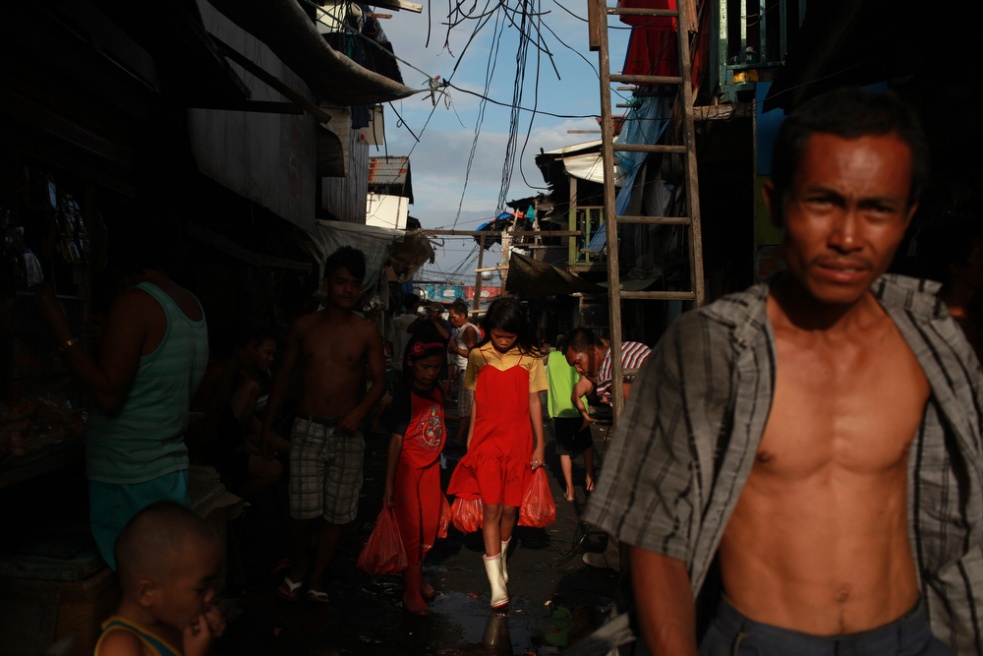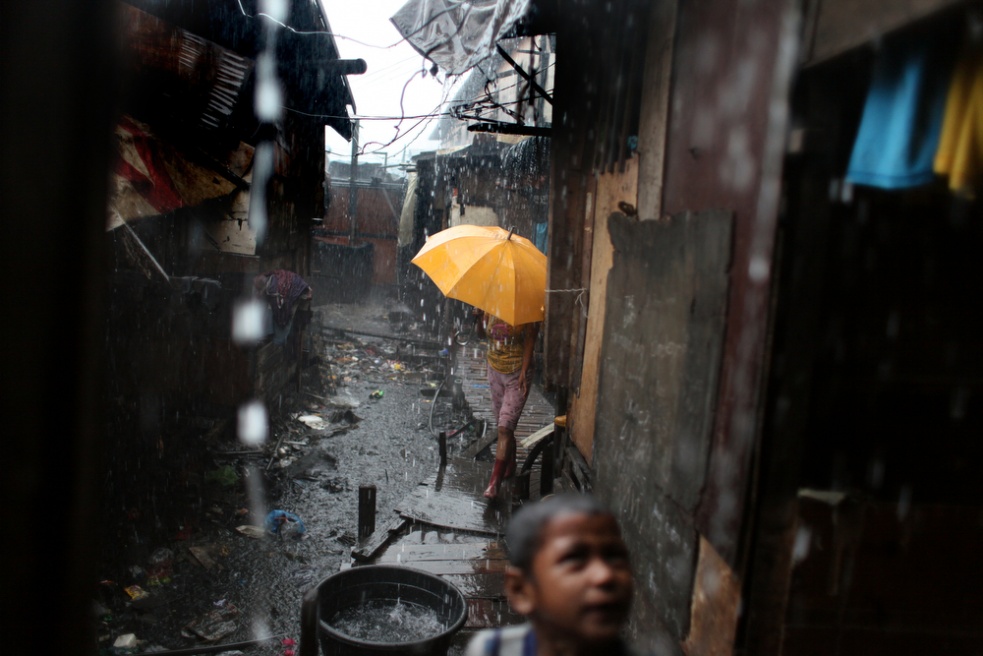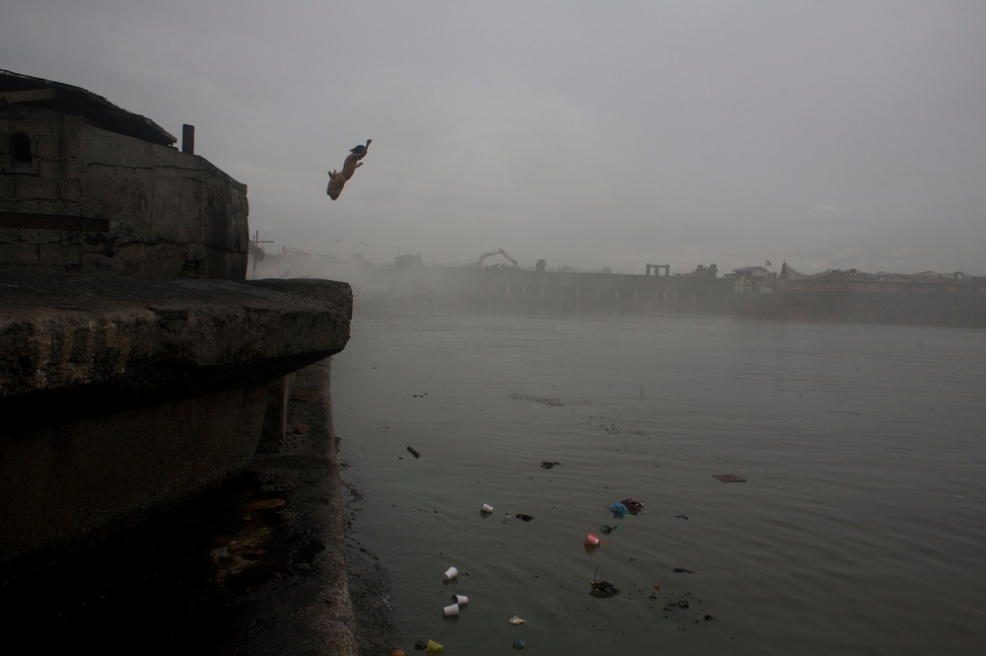The experience of childhood is increasingly urban. Over half the world’s people – including more than a billion children – now live in cities and towns The State of the World’s Children report: Unicef 2012
The Charcoal Project originates in the Ulingan community in Manila where thousands of Filipino urban slum dwellers live amid filth and swirls of toxic smoke, eking out a living making charcoal. The combined smell of the dense sea, burning charcoal, and decaying waste greets one at the mouth of the village, foreshadowing the extreme conditions within the community.
Metro Manila is one of the largest and most densely populated cities in the world. It is home to around 20 million people and rising by another quarter of a million every year. The agency estimated that out of Metro Manila’s 11.5 million residents, some 1.7 million children in 570,000 households now live in the squalor of informal settlements.
Rural poverty has caused thousands of Filipinos to migrate to Manila every year from the countryside in search of a better life...However, they find few jobs and often have nowhere to live as the city is running out of space. As a result 35% of the population is living in slums with limited access to sanitation, healthcare and education.
The slums near Manila Bay are unhealthy enough—the Ulingans live next to a rubbish dump. But the rudimentary process of making charcoal in open pits next to the dump site exposes the squatters to even more harmful emissions such as carbon monoxide, nitrous oxide, and soot, as well as chemicals from burning treated wood. The result is a myriad of respiratory illnesses and heart disease. Estimates suggest that 60% of the population has tuberculosis while other lung problems and water-borne diseases are commonplace. Researchers have identified more than 35 diseases in garbage-scavenging areas, including cholera, dysentery, malaria, skin disorders, tuberculosis, and typhoid
The vicious energy poverty cycle is clearly visible in Manila, where many children are held out of school by their families to make charcoal. Instead of going to school, children – usually young girls – have to spend hours collecting firewood to heat their homes to cook and to sell. Children, who comprise a vital portion of the work force, labor without protective masks, gloves, or boots. Some are naked. They work and play in thick toxic smoke, dragging soggy scraps of wood scavenged from garbage dumps and construction sites. Groups of children scour areas of ash and soot searching for lucrative metal left exposed by continual burn off. Makeshift shelters constructed from tarpaulin and plastic are strewn across the landscape..Small-scale charcoal production in the developing world is usually illegal and unregulated. It occurs not only in urban slums like these in the Philippines, but in rural areas across the globe.
These children were the subject of my initial work in this area—The Charcoal Kids of Ulingan.
I visited this Ulingan in 2008 and again in 2011, spending time with the families, developing relationships and documenting the children’s living conditions which are entirely dependent on toxic charcoal production. What I discovered is that while charcoal production is a vital necessity in this community and in many other third world areas that have no other energy alternatives, the destructive ramifications of its production penetrate both locally and globally.
Three billion people, almost half of the world’s population, rely on wood, charcoal, and dung for cooking and heating purposes. Energy poverty is one of the least discussed aspects of our current energy challenge, yet it poses serious threats to economies, national security, the environment, and public health throughout the world.
I






































